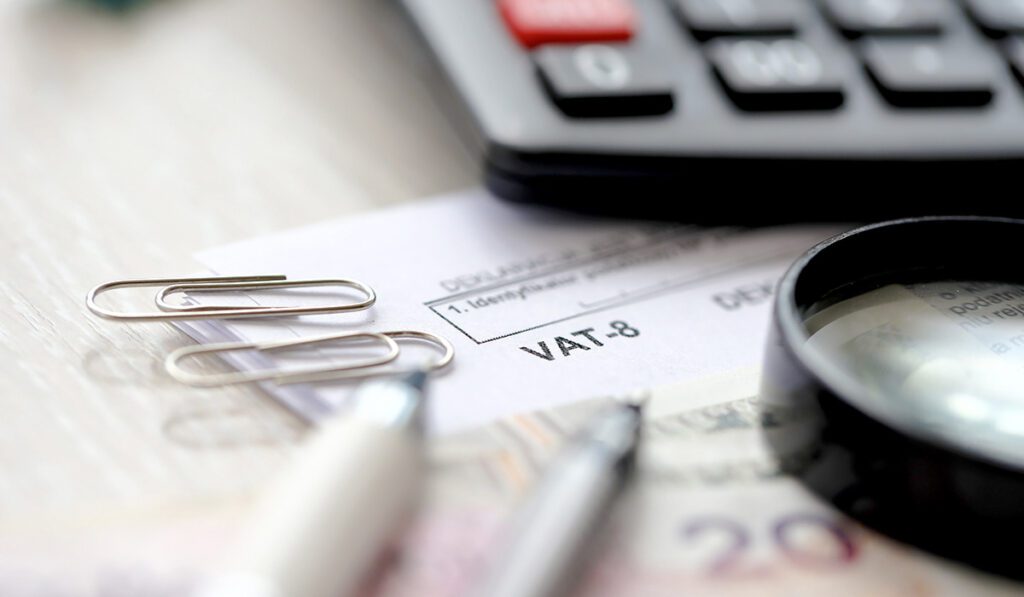

In the bustling landscape of Vietnam’s economic growth, businesses find themselves navigating a complex web of regulations, with corporate tax in Vietnam playing a pivotal role in shaping financial strategies. In this article, we embark on a detailed exploration of corporate tax in Vietnam, shedding light on the policies, challenges, and opportunities that enterprises face in this dynamic Southeast Asian market. Join us as we uncover the facets of Vietnam’s corporate tax system and offer insights that businesses need to thrive in this ever-evolving fiscal environment.
Looking into Corporate Tax in Vietnam
Corporate Income Tax (CIT) is a direct tax levied on companies’ profits, calculated by deducting expenses from gross revenue, with quarterly payments required within 30 days and late payment interest applied if the provisional payments fall below 80 percent of the finalization amount at the time of the last tax payment.
Businesses Charged with Corporate Income Tax in Vietnam
CIT in Vietnam is applicable to a broad range of enterprises, both local and foreign, operating under Vietnam’s laws, such as joint-stock companies, limited liability companies, and partnerships established under foreign laws with a Vietnam-based permanent establishment.
Percentage for Corporate Tax in Vietnam
The standard CIT rate is 20 percent for both local and foreign enterprises, with exceptions for certain sectors; petroleum and gas companies face rates from 32 to 50 percent, while those in rare mineral exploration and exploitation encounter rates of 40 or 50 percent. This, however, may not apply to distinct mineral reserves, as specific CIT rates may apply.
Personal Income Tax for Employment
Resident taxpayers in Vietnam are liable for Personal Income Tax (PIT) on their global employment income, ranging from 5 to 35 percent. This includes various forms of remuneration, such as salaries, allowances, subsidies, benefits from business involvement, and bonuses, excluding government grants.
Corporate Tax in Vietnam: Non-Taxable Categories
On the flip side of corporate tax in Vietnam, certain income from various sources, including capital contributions, joint ventures, and collaborations with regional businesses, is taxable after corporate tax payments. Additionally, revenue streams from activities such as cooperatives in salt production, aquaculture, agriculture, direct technical services to agriculture, and businesses with a significant percentage of employees facing specific challenges are exempted from taxation in Vietnam.
Taxable Corporate Tax in Vietnam
Corporate tax in Vietnam encompasses revenue from typical sources such as production, goods trade, and service provision, as well as other sources such as real estate sales, asset ownership or use, earnings from asset transactions, interest, and recoveries from emergency reserve funds.
Debt recoveries, undisclosed company income from previous years, and income from production or business ventures outside of Vietnam also fall into this category. Various income streams, including those from asset-related transactions and international business activities, contribute to the overall taxable income.
Corporate Tax in Vietnam: Categories for Deduction
As for deductions for corporate tax in Vietnam, business-related expenditures, such as office expenses, travel costs for business trips, uniforms, wages, subcontractor expenses, stock or raw material costs, bank charges, insurance fees, and commercial space utilities such as heating and lighting, contribute to the overall operational expenses.
Additionally, costs like rent for commercial space and expenses associated with marketing and advertising are integral components of the overall business expenditure.
Vietnam Corporation Tax Report Filing
Businesses in Vietnam are obligated to submit their annual Corporate Income Tax (CIT) return and audited financial statements by the final day of the third month following the conclusion of their calendar or financial year.
Quarterly, based on financial performance, companies must make provisional CIT payments by the 30th day of the subsequent quarter, ensuring a regular contribution towards their CIT liability and preventing delayed payments until the year-end.
Notably, late payment interest applies if the total provisional CIT paid is below 80% of the annual CIT, calculated from the day after the last day of the fourth quarter tax payment deadline of the fiscal year.
The ultimate CIT return, encompassing the entire year’s liability, is due by the last day of the third month after the calendar or financial year concludes, with any outstanding amounts settled at this juncture.
Corporate Tax in Vietnam: Additional Important Taxes
Global Minimum Tax
The Ministry of Finance is drafting a resolution for Vietnam’s Global Minimum Tax policy, aligning with the OECD’s 15% minimum effective tax rate for multinational enterprises. The proposal, open for public comments since July 25, focuses on attracting foreign investment through tax incentives within a competitive framework, with the intended effective date of January 1, 2024.
Value Added Tax (VAT)
VAT in Vietnam, with rates of 0%, 5%, and 10% is a consumption tax on goods and services sales. Buyers withhold and remit VAT, and registration is mandatory for businesses meeting revenue thresholds. Registered businesses file monthly or quarterly returns, and exports enjoy zero-rated VAT, allowing input VAT reclamation.
Custom Duties
Customs duties apply to goods entering or leaving Vietnam, determined by transaction value. Exemptions include transit, transshipment, humanitarian aid, non-refundable aid, and specific products. Tax rates come in ordinary, preferred, and exceptionally preferential categories, with ordinary rates set at 150% of the preferential rate per the Preferential Import Tariff.
Special Sales Tax (SST)
Special Sales Tax (SST) in Vietnam is a consumption tax on luxury or environmentally harmful goods and services, with rates generally higher than standard VAT. Businesses supplying taxable items must collect and remit SST to comply with local tax laws.
Payroll Taxes
Vietnamese businesses must withhold, declare, and pay Personal Income Tax (PIT) on employee wages. Non-residents face a flat 20% rate on Vietnam-sourced income, while residents, taxed at progressive rates (5% to 35%) on worldwide income, can use exemptions and contributions to specific funds for PIT reduction. Employment income from work in Vietnam is subject to PIT without adjustment for relief or deductions.
Corporate Tax in Vietnam: Penalties
Vietnam imposes penalties for tax offenses, ranging from administrative fines to substantial amounts, with an increasing strictness, especially in audits. Adherence to tax laws is vital for businesses and individuals to prevent potential penalties.
Premia TNC’s Assistance with Taxation
For business owners, the traditional approach of establishing an internal team for tax and accounting can be costly and risky, particularly for foreign investors. Hiring and onboarding new employees involves significant expenses and bureaucratic hassles.
Opting for third-party solutions from specialists like Premia TNC offers benefits such as staying constantly updated on evolving regulations, instant access to on-call experts, and proper allocation of resources for more strategic business focus. By outsourcing tax and accounting services, businesses can efficiently navigate regulatory changes, access expert advice, and concentrate on overall business growth.
What is the corporate tax rate in Vietnam?
The standard corporate income tax rate in Vietnam is 20%, with potential preferential rates for specific industries or activities.
What are the key corporate tax deductions in Vietnam?
Businesses in Vietnam can deduct expenses for research, training, and charitable contributions and may qualify for industry-specific deductions or investment incentives.

premiatnc
View All BlogsRelated Posts
April 16, 2024
The Ins and Outs of a Limited Liability Company in Vietnam
Establishing a business in Vietnam can…
March 22, 2024
Unlocking Avenues: Discovering the Best Business Opportunities in Vietnam
Nestled in Southeast Asia, Vietnam is…
March 6, 2024
E-commerce in Vietnam: Growing Cross Border Ecommerce Opportunities with China-Vietnam
Vietnam's economy is swiftly…




